Autres mots-clés :
nationalisme
-

Appel à contributions
Marginalized Masculinities and the Nation : Global Comparisons, 1800-1945
Avant le 30 juin
Historical scholarship has long established the inextricable interrelationship between gender and the nation. Feminist scholars in particular have demonstrated how male nationalists incorporated women as symbolic, cultural, and biological reproducers of the nation into their “imagined communities.”
lire la suite
-
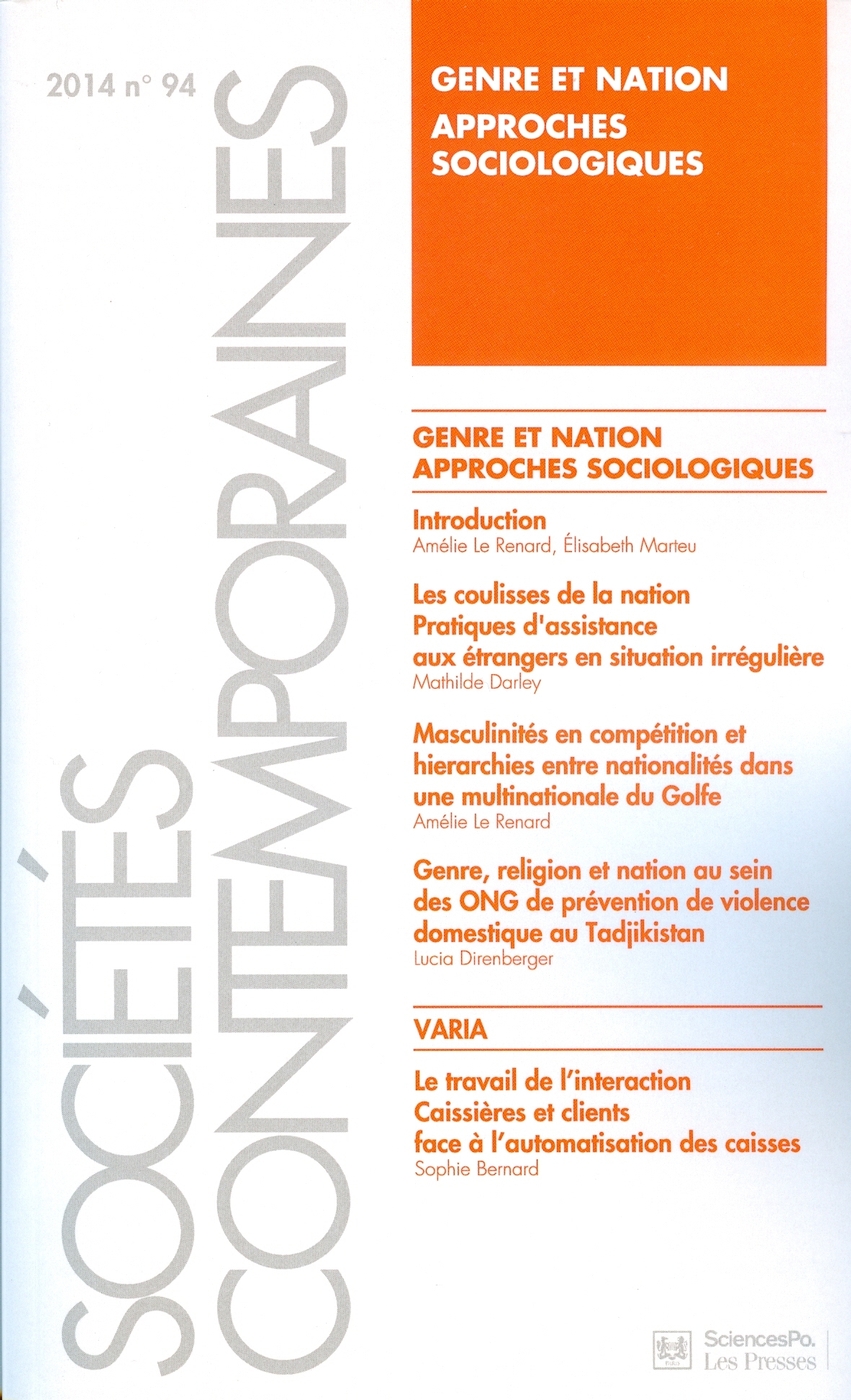
Sociétés contemporaines, "Genre et nation. Approches sociologiques"
Dans différents contextes, le genre se trouve aujourd’hui placé au centre de la promotion d’identités nationales dites démocratiques, libérales et/ou progressistes. Pour montrer comment ces reconfigurations s’opèrent, ce dossier s’intéresse à trois univers professionnels et/ou associatifs articulant les hiérarchies de genre, de classe, de race et d’appartenance nationale : un centre de rétention pour étrangers en Allemagne (Mathilde Darley), une entreprise multinationale implantée en Arabie Saoudite (Amélie Le Renard) et une ONG oeuvrant pour l’égalité hommes-femmes au Tadjikistan (Lucia Direnberger).
lire la suite
-
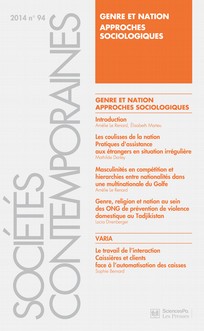
Sociétés contemporaines, "Genre et nation. Approches sociologiques"
Dans différents contextes, le genre se trouve aujourd’hui placé au centre de la promotion d’identités nationales dites démocratiques, libérales et/ou progressistes. Pour montrer comment ces reconfigurations s’opèrent, ce dossier s’intéresse à trois univers professionnels et/ou associatifs articulant les hiérarchies de genre, de classe, de race et d’appartenance nationale : un centre de rétention pour étrangers en Allemagne (Mathilde Darley), une entreprise multinationale implantée en Arabie Saoudite (Amélie Le Renard) et une ONG oeuvrant pour l’égalité hommes-femmes au Tadjikistan (Lucia Direnberger).
lire la suite
-
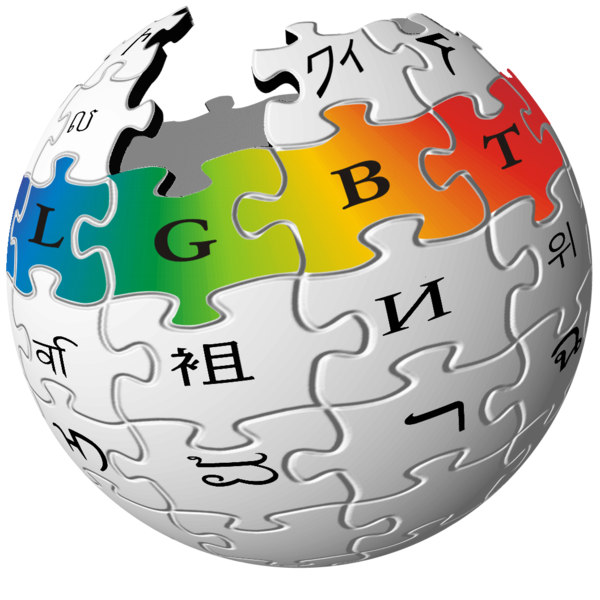
Gender equality, nationalism and welfare : Intersectional contestations and the politics of belonging
Avant le 1er avril 2014 - NORA
Support for both the welfare state and gender equality is seen as important for the politics of belonging (Yuval-Davis 2011) in a number of Western societies. At the same time, contemporary nationalist and populist parties (e.g. in the different Nordic countries) have formulated welfare and gender-equality policies that have been criticized by many observers. The assumption of these parties is that all natives are already gender equal, whereas migrants from non-Western countries are accused of oppressive behaviour in terms of such categories as gender and sexuality.
lire la suite
-
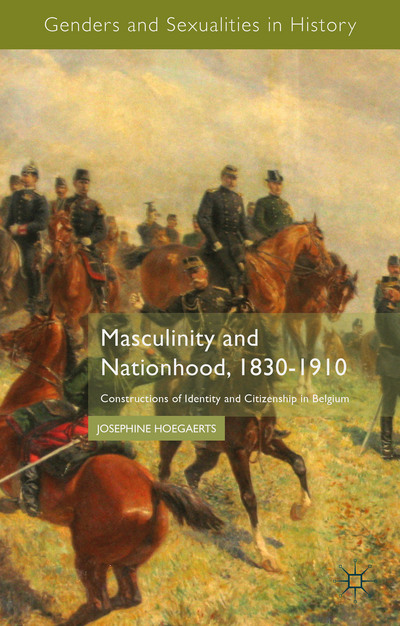
Josephine Hoegaerts, Masculinity and Nationhood, 1830-1910. Constructions of Identity and Citizenship in Belgium
Masculinity and Nationhood, 1830-1910 looks at ’masculine’ patriotic behaviour in schools, army and parliament in nineteenth century Belgium. Schoolboys singing on excursion, soldiers acting out a shot wound on the maneuvering field and politicians raising their voices against effeminacy : all articulated their manly love of the nation in their own way. In recent years, much has been written about masculinity and citizenship in modern Europe.
lire la suite
-
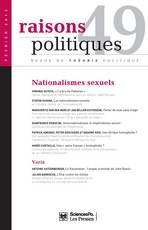
Revue
Raisons politiques, "Nationalismes sexuels"
Le débat autour de l’« homonationalisme », du pinkwashing et de l’« impérialisme gay » est actuellement très vif au sein des mouvements féministes, LGBT et anti-colonialistes. Ce dossier vise à alimenter la réflexion en analysant certaines des reconfigurations contemporaines des sexualités et des nationalismes.
lire la suite
-
Lucia Direnberger, "Le genre de la nation en Iran et au Tadjikistan. (Re)constructions et contestations des hétéronationalismes"
11 décembre 2014 - Paris Diderot
-
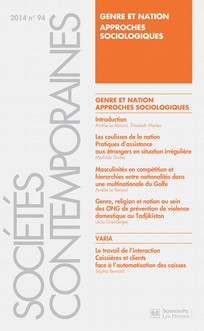
Sociétés contemporaines, "Genre et nation : Approches sociologiques"
Dans différents contextes, le genre se trouve aujourd’hui placé au centre de la promotion des identités nationales dites démocratiques, libérales et/ou progressistes. Pour montrer comment ces reconfigurations s’opèrent, ce dossier s’intéresse à trois univers professionnels et/ou associatifs articulant dans leur hiérarchie les notions de genre, de classe, de race et d’appartenance nationale : un centre de rétention pour étrangers en Allemagne (Mathilde Darley), une entreprise multinationale implantée en Arabie Saoudite (Amélie Le Renard) et une ONG œuvrant pour l’égalité hommes-femmes au Tadjikistan (Lucia Direnberger).
lire la suite
-
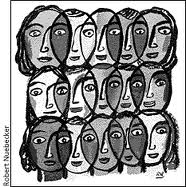
Transnationalism, Gender and Migration. The Intersectional challenges of Social Mobility
Avant le 1er septembre - Îles Canaries
The key objective of this Conference is to articulate the debate surrounding issues of gender and migration from a Citizenship, Inter-generational and Social Mobility approach. Over the past two decades there has been a growing interest in the study of mobilities from a gender perspective. Literature has focused mainly on shedding light on the active participation of women in population movements, with particular attention on the transnational approach.
lire la suite
Fichiers de syndication :
Statistiques :
Le site contient 4383 articles
